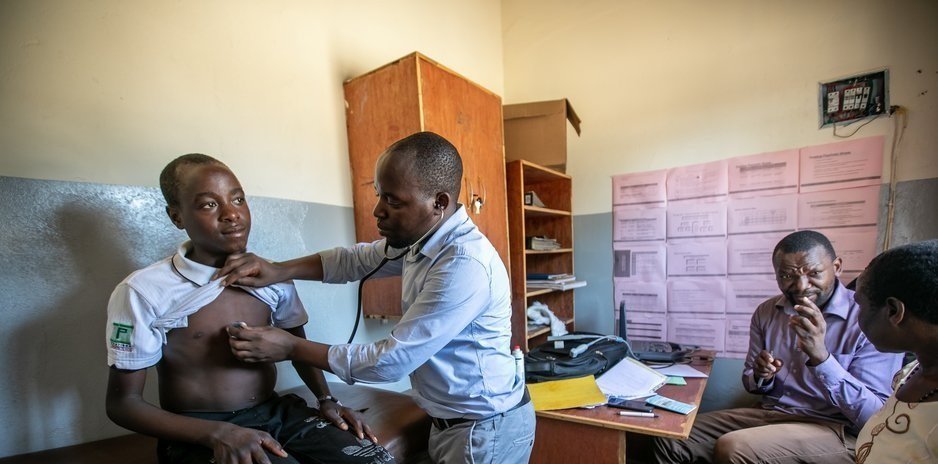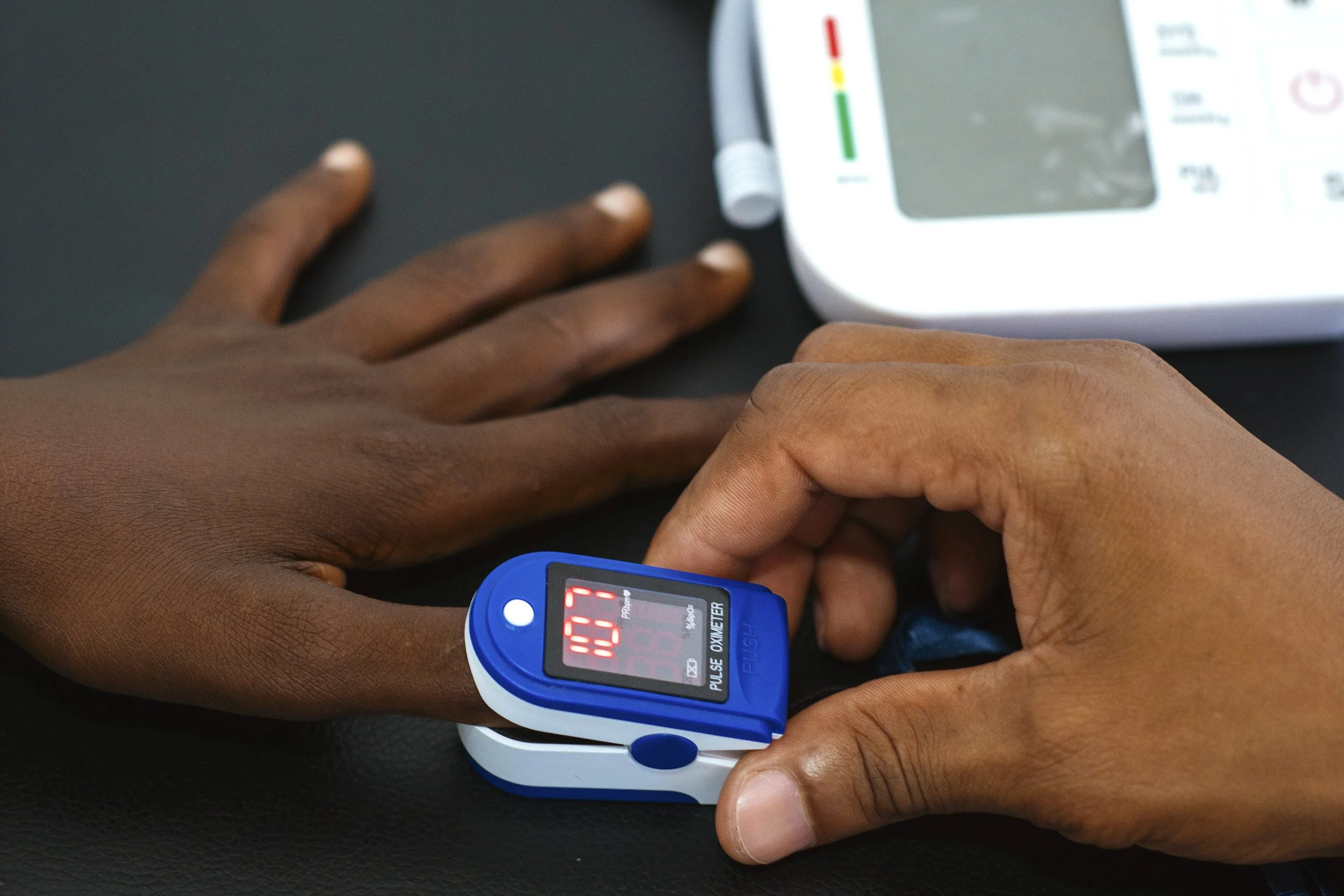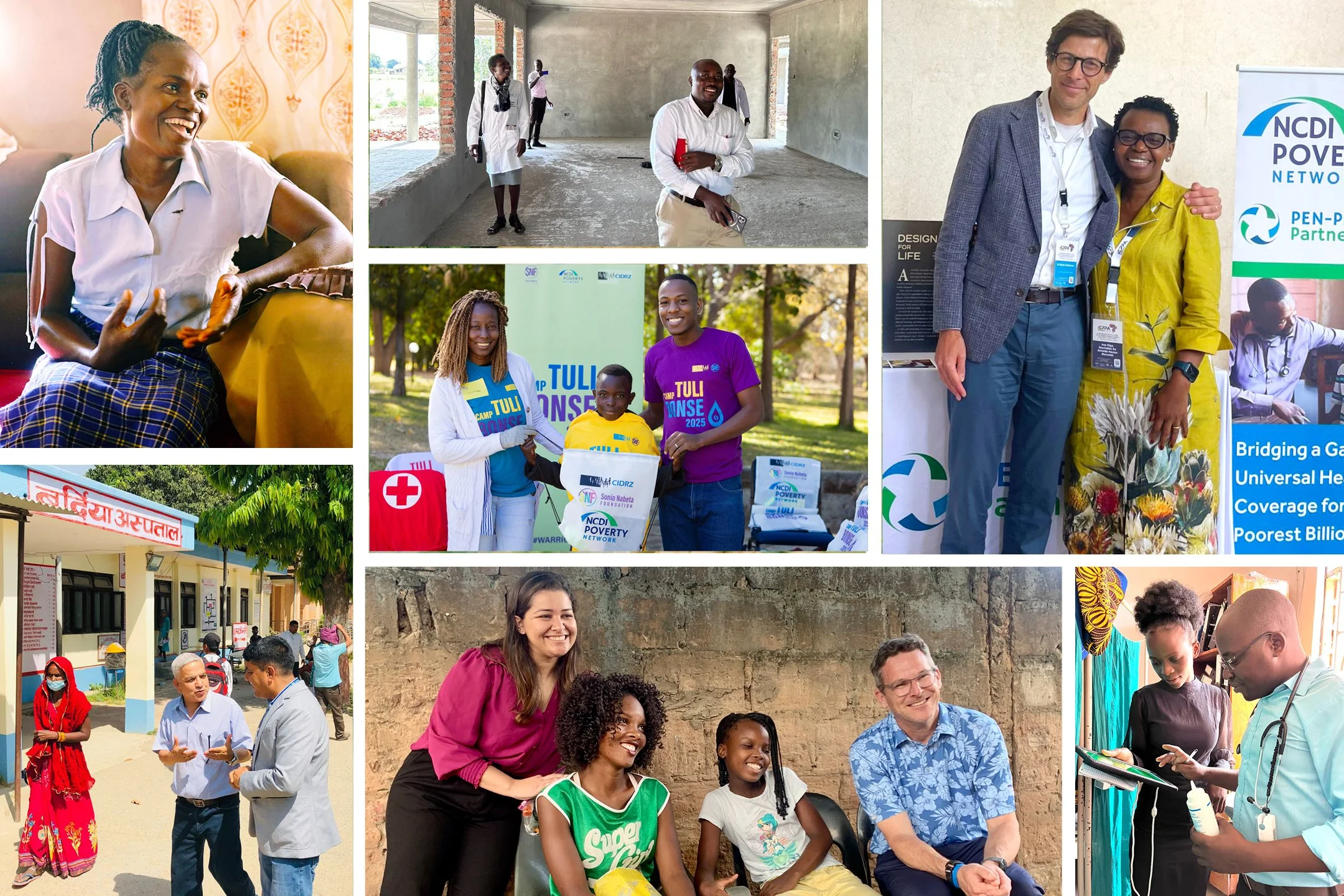
PEN-Plus
Integrated Chronic Care for People Living with Severe NCDs in Impoverished Rural Areas
PEN-Plus is an integrated care delivery strategy focused on alleviating the noncommunicable disease (NCD) burden among the poorest children and young adults by increasing the accessibility and quality of chronic care services for severe NCDs—such as type 1 diabetes, rheumatic heart disease, and sickle cell disease—in the rural areas of low- and lower-middle-income countries, where more than 90 percent of the world’s poorest people live.
In many lower-income countries, chronic care services for these severe conditions are only available at referral hospitals in major cities, making treatment both inaccessible and unaffordable for the rural poor. As a result, many poor children and young adults go without treatment for severe conditions that almost always lead to premature death if left untreated. And that is why, for example, one study found that life expectancy for children with type 1 diabetes is less than one year after diagnosis in much of sub-Saharan Africa.
Addressing a Critical Gap in Health Care for the World’s Poorest Billion
PEN-Plus addresses this service gap by bringing lifesaving chronic care for severe NCDs to first-level rural hospitals for the first time. PEN-Plus trains mid-level providers such as nurses and clinical officers in the skills needed to provide integrated chronic care services for a group of severe NCDs, including diagnosis, symptom management, psychosocial support, palliative care, and referral for surgical and other specialty care when necessary.
PEN-Plus complements the World Health Organization’s Package of Essential Noncommunicable Disease Interventions (WHO PEN), which addresses less severe NCDs, such as uncomplicated hypertension and type 2 diabetes at the health center level.
PEN-Plus also bridges major gaps in training, mentorship, and referral pathways for NCD services. PEN-Plus nurses with advanced NCD training provide training, supervision, and mentorship to staff who deliver WHO PEN services at health centers. This training and mentorship enables health center staff both to improve the quality of care for more common, less severe NCDs and to recognize and refer patients with severe NCDs to the PEN-Plus clinic. In turn, PEN-Plus providers receive training and mentorship from specialists at referral hospitals, refer patients for specialty services when necessary, and provide essential chronic care services following acute specialty interventions, such as anti-coagulation for people with rheumatic or congenital heart disease who have had valve replacement surgery.
Principal PEN-Plus Conditions
Sickle Cell Disease
Type 1 Diabetes
Rheumatic Heart Disease
PEN-Plus providers typically treat complex, less-common diseases for which treatment had previously not been available, such as type 1 diabetes, sickle cell disease, and rheumatic and congenital heart disease. As proved in Rwanda, when PEN-Plus is scaled nationally in low- and lower-middle income countries, it greatly improves access to care for people living with some of the most severe and most difficult to manage noncommunicable diseases.





